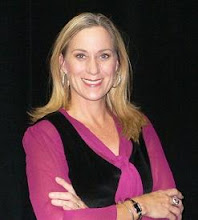
The six weeks I spent Harvard this winter really opened my eyes. I was there to learn more about unions - history, labour law, and how collective action has advanced human rights - and how to be a better leader.
I certainly learned unions are in trouble. Membership is down and there is less and less public understanding about the good things unions do. In the US, people seem to believe that unions are responsible for the ongoing financial crisis. It's ludicrous and we have to fight that perception. Yes, it's worse in the States, but as we all know, every trend - good and bad - finds its way north. Our own government has frozen public service wages two years running, after all.
The headline is that we have to start fighting back. Here are some of the ideas we discussed at Harvard ... and CMG is in a good position to do make them real:
- work more closely with other unions
- get unorganized workers to join the union ... build our forces
- make sure our country's diversity is reflected in our ranks.
I picked up a library of books at Harvard on the struggles and successes of unions in North America. It'll take me three years to get through them all. I plan to do a review from time to time in this space.
The bottom line is, what kind of world do you want to live in?
I certainly learned unions are in trouble. Membership is down and there is less and less public understanding about the good things unions do. In the US, people seem to believe that unions are responsible for the ongoing financial crisis. It's ludicrous and we have to fight that perception. Yes, it's worse in the States, but as we all know, every trend - good and bad - finds its way north. Our own government has frozen public service wages two years running, after all.
The headline is that we have to start fighting back. Here are some of the ideas we discussed at Harvard ... and CMG is in a good position to do make them real:
- work more closely with other unions
- get unorganized workers to join the union ... build our forces
- make sure our country's diversity is reflected in our ranks.
I picked up a library of books at Harvard on the struggles and successes of unions in North America. It'll take me three years to get through them all. I plan to do a review from time to time in this space.
The bottom line is, what kind of world do you want to live in?
